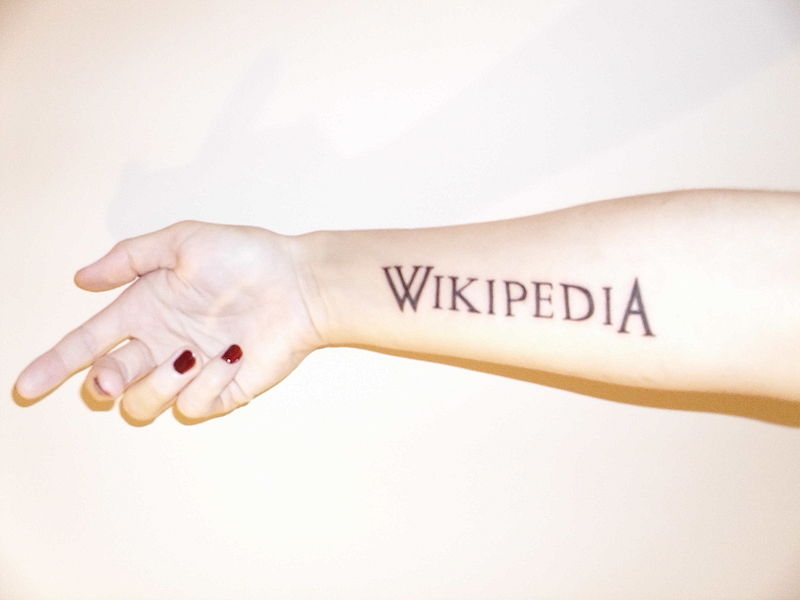Robert Montenegro
Ideafeed Editor
Robert Montenegro is a writer and dramaturg who regularly contributes to Big Think and Crooked Scoreboard. He lives in Washington DC and is a graduate of Loyola Marymount University in Los Angeles.
Twitter: @Monteneggroll. Website: robertmontenegro.com.
Less than half of American workers ask for pay raises. As Kate Ashford of Forbes explains, the key is resisting the stigma associated with talking about money in the workplace.
New Zealand has granted residency to the first climate change refugees, a family from Tuvalu. Assuming current trends continue, rising sea levels could submerge island nations such as Tuvalu and Kiribati in the next 30 to 50 years.
Straight from the department of “why didn’t I think of that?”, a British designer has invented an alarm clock that doubles as coffee machine.
Apparently, out-of-office replies have their own little acronym now — they’re colloquially known as “OOO’s.” Your OOO may say more about you than you realize.
“Faith is believing something you can’t see,” says Dr. Nate Regier. Not just a religious concept, faith in oneself and others distinguishes leaders from the rest of the pack.
Is a silly name to blame for the Wii U’s lack of success in the console market? Some critics blame poor marketing while others question Nintendo’s ambiguous balance between serious and casual gaming.
Once a social taboo, tattoos have ridden a wave of popularity resulting in a variety of new trends, including an incorporation of popular brands and logos in body art.
A new report from Independent reveals that, despite attempts to rebrand itself, AOL still makes more money selling dial-up than by selling ads.
Dr. Raymond Bearse, the interim president of Kentucky State University, cut his salary $90,000 (to a paltry $259,745) in order to raise the minimum wage on campus to $10.25.
The late author and professor famously dissected the falsely perceived equivalency between ignorance and knowledge in a 1980 Newsweek piece titled “A Cult of Ignorance.” One wonders what Asimov would say about the current conflict between science and opinion.
Data produced by DeskTime, an app that tracks habits of employees on work computers, suggests the most productive employees put in 52 minutes of work for every 17 minutes of break.
IBM and USAA have joined forces to introduce supercomputer Watson to veterans in need of guidance as they transition back into society.
Arthur Chu made waves earlier this year when he won nearly $300,000 on Jeopardy. Like Ken Jennings before him, Chu knows that he has to branch out if he hopes to remain relevant.
Ever feel like a guppy in a shark tank when attending networking events? Unless you’re a natural-born used car salesman, the sales pitch atmosphere of these mixers can be a little overwhelming. Luckily, you’ve got alternatives.
Sometimes the biggest obstacle keeping a worker from optimum productivity is an overbearing, micromanaging boss. The secret to managing a micromanager is in taking hold of the the reigns of interpersonal communication.
“Regulation” need not be a dirty word. When new technologies emerge that shift the paradigms under which an industries operate, it’s important for legislative authorities to prudently adjust the rules without stifling further innovation.
You may be familiar with the expression “the clothes make the (wo)man.” A psychologist might agree with that sentiment, as preliminary studies seem to suggest people adopt traits associated with different styles and fashions.
Multilevel marketing is a controversial business model that recruits customers to sell products to other customers. Companies like Herbalife and MXI Corp who employ multilevel marketing have been accused by critics of being pyramid schemes in disguise.
An upscale New York inn has seen its Yelp profile destroyed after the New York Post reported on its punitive crackdown on negative online reviews.
When you hear about theatre companies going under, poor finances tend to be the major culprit. In the case of Arlington, Virginia’s American Century Theatre, the decision to close is more a matter of “mission accomplished.”
The UK will allow driverless cars on its impossibly narrow country roads starting in January 2015. Before then, authorities will need to conduct extensive tests and determine just how to regulate things such as liability and insurance.
Love him or hate him, it’s undeniable that David Stern’s reign as NBA commissioner coincided with a major institutional investment in female fans and employees. The NBA’s progressive gamble has paid major dividends.
As researchers investigate the broad scope of anti-Greek litigation, the country is left to wonder “are fraternities more trouble than they’re worth?” Finding the answer requires a glimpse into America’s Greek Life culture.
In what represents a shift in front office philosophy, the storied Maple Leafs franchise has hired 28-year-old Kyle Dubas wunderkind as assistant general manager. The move is seen as a victory for stats community and a blow to hockey’s “old boy’s club.” Is it the NHL’s answer to Moneyball?
RadioShack is on death’s doorstep and public response seems to exist steadily in the “well, it’s about time” camp. In this difficult time for brick-and-mortar retailers, there are lessons to be learned from RadioShack and other fallen companies about reinvention and adaptation.
The act of hiring is not unlike setting a foundation upon which you plan to build. Avoiding common hiring mistakes will help strengthen your foundation and pave the way for growth and success.
Leaders are not one-size-fits-all. Any organization that trains its leadership should prioritize context and assimilation while focusing on building experience over knowledge.
The facelift designs for a zoo in Givskud, Denmark inspire awe (and just a little bit of terror). BIG, the firm tasked with rethinking the animal park’s look, calls it “the world’s most advanced zoo.”
Information Technology is at the forefront of a large shift that will result in procedural and philosophical changes. Employers can make decisions now that will help shape IT for the future.
A non-diet approach to weight management is more likely to produce results than the alternative. Workplaces that promote employee health in hopes of lowering premiums should look into “Eat for Life,” a strategy that promotes mindfulness and healthy habits.





























